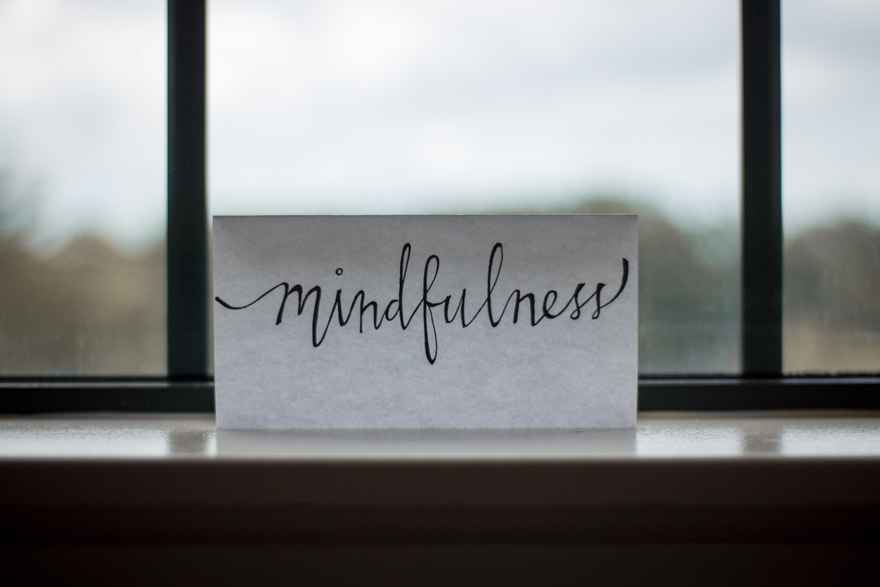
From worldwide pandemics to difficult relationships, our world is filled with circumstances that cause stress.
A study published in the journal Proceedings of the National Academy of Sciences found that dealing with persistent, long-term stress (like that from a toxic work environment or from caring for an elderly parent) can actually change the expression of your genes, leading to an increase in inflammation that can bring on a variety of health issues.
Learning how to cope with stress in a positive way can go a long way for your everyday health.
What is stress?
The stress response is your body’s reaction to a challenge, demand, or perception of danger. The stress response was designed to protect you from danger.
Also known as the fight/flight/or flee response, the stress response gets the body ready for action.
If your brain perceives danger, it sends triggers to the adrenal glands. The adrenals produce hormones, such as cortisol, which raise blood pressure and blood sugar (among other things).
While this natural response to danger is essential to survival if you need to outrun a hungry lion, or react quickly to jump out of the way of an out-of-control vehicle, it is less helpful if the perceived threat is a layoff at work. And it can be harmful to health if sustained over time.
Unhelpful Ways of Dealing With Stress
Buffering with unhealthy activities
Coping with stress by indulging in a bottle of wine, smoking pot or a pack of cigarettes, or drinking copious amounts of caffeine might bring a release in the moment, but only sets you up to stress out more once the high wears off.
These habits tend to increase the negative impacts stress is already having on your body (raising your blood pressure, making you jittery, keeping you awake at night to name just a few), you enter into a vicious cycle of feeling more stressed out and then returning to the vice over and over. Read more about this here.
Buffering with food
Like alcohol or drugs, we often turn to food to help cope with difficult times. Soothing your pain with high-calorie, high-sugar, or high-fat comfort foods feels good at first, but it can quickly spiral out of control when your mind and body begin to associate negative emotions with eating. At the first sign of stress, anger, or sadness you'll instinctively reach for food to make you feel better rather than dealing with the feelings at hand. Overeating can cause weight gain and make you feel worse about yourself.
Hibernation
The thought of hiding away under the covers sounds appealing when there seems to be too much to deal with. However, sleeping too much actually makes you more tired and lethargic. This only makes it harder to focus and deal constructively with your stressors.
Ignore the problem
Consistently avoiding the stress in your life is counterproductive. When you avoid thinking about your problems, you don’t allow yourself to process what you are dealing with. Often, ignoring something - whether it's a concrete problem like paying off bills or an emotional one like the fear of losing a job – causes the problem to get bigger. Instead, reach out for help and make a plan of action that will eventually diminish your problems and alleviate your stress.
Helpful Ways of Dealing With Stress
Physical Exercise
Exercise may be the the healthiest way to help deal with stress. It increases your body's production of the chemicals in your brain that make you feel good, it can help regulate your sleep, it lowers the symptoms associated with mild depression, boosts your energy, and it helps you remain calmer and more focused, all of which can go a long way toward stress management.
While it's easy to let a daily exercise routine slide when you're overwhelmed, it is important to incorporate movement your day. Choose an activity you will look forward to, enlist a buddy to motivate you, or schedule it into your calendar like any other task—and you'll soon understand why it's a critical part of any stress-management plan.
Spending time in nature
Research indicates that the vitamin D boost from sunlight may elevate your levels of calming neurotransmitter, serotonin. Also, the sights, sounds, and smells found in nature help to redirect your focus from your worries.
If you can't get outside research indicates that plants added to the workspace can help to reduce some of the physical consequences of stress.
Adopt a daily routine
Whether it's taking a bath before bed, listening to your favorite playlist on the commute to work, or walking your dog every morning, comforting routines help to alleviate stress. When stressful situations leave you feeling powerless, following a routine allows you to take back control over part of your day and can help alleviate some of the anxiety and tension.
Express Gratitude
Scientific studies have revealed the positive effects of expressing gratitude. While studying brain activity, National Institutes of Health researchers found subjects who showed more gratitude had higher levels of activity in the hypothalamus, a part of the brain that has a huge influence on our stress levels. Plus, gratefulness also activated the regions associated with dopamine, one of those feel-good neurotransmitters.
To reap these stress-reducing benefits, write down your feelings of gratitude daily in a journal, or by sending little notes to friends or family letting them know how much you appreciate them.
Practice Mindfulness
Scientific research suggests that mindfulness helps to lessen the impact of future stressors on happiness and physical well-being. Mindfulness is the single most helpful skill in the toolbox for relieving stress.
The Benefits of Mindfulness
Here are the ways mindfulness can help manage stress:
You become more aware of your thoughts. You can then step back from them and not take them so literally. That way, your stress response is not initiated in the first place.
You don’t immediately react to a situation. Instead, you have a moment to pause and then use your “wise mind” to come up with the best solution.
Mindfulness switches on your “being” mode of mind, which is associated with relaxation. Your “doing” mode of mind is associated with action and the stress response.
You are more aware and sensitive to the needs of your body. You may notice pains earlier and can then take appropriate action.
You are more aware of the emotions of others. As your emotional intelligence rises, you are less likely to get into conflict.
Your level of care and compassion for yourself and others rises. This compassionate mind soothes you and inhibits your stress response.
Mindfulness practice reduces activity in the part of your brain called the amygdala. The amygdala is central to switching on your stress response, so effectively, your background level of stress is reduced.
You are better able to focus. So you complete your work more efficiently, you have a greater sense of well-being, and this reduces the stress response. You are more likely to get into “the zone” or “flow,” as it’s termed in psychology by Mihaly Csikszentmihalyi.
You can switch your attitude to the stress. Rather than just seeing the negative consequences of feeling stressed, mindfulness offers you the space to think differently about the stress itself. Observing how the increased pressure helps energize you has a positive effect on your body and mind.
If you want to know more about mindfulness, I have an in-depth 8-week course that provides an in depth understanding of the nature of mindfulness and helps you to integrate mindfulness techniques into your daily life. Contact me for more information at sheila.gravely@thelifest.com
Photo Credits: Photo by Lesly Juarez on Unsplash

Comments